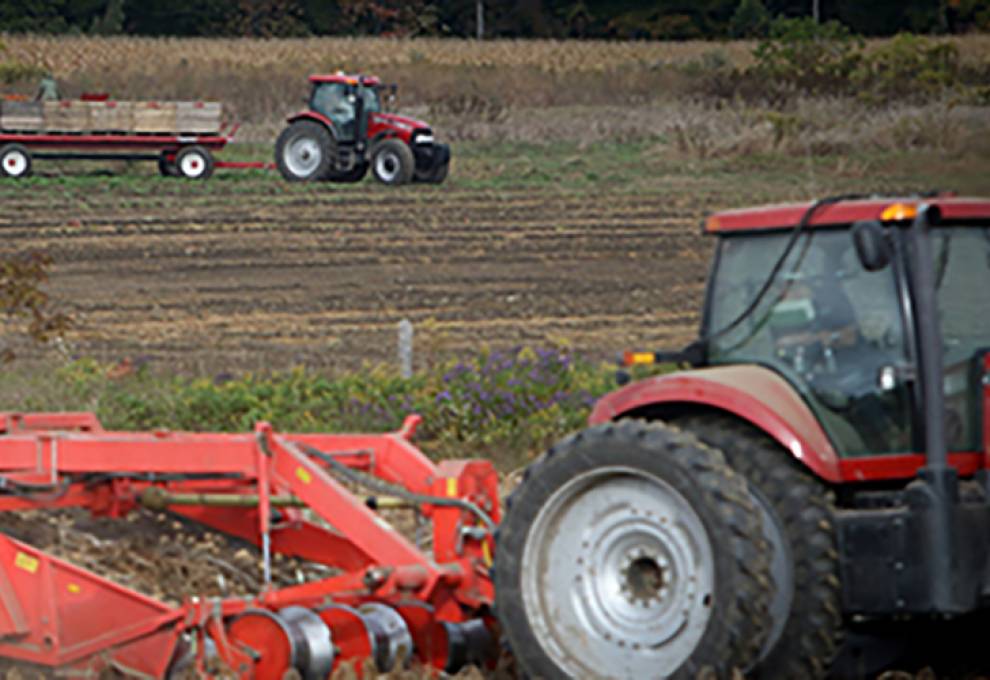
With Thanksgiving, Ontario Agriculture Week and the Trans-Pacific Partnership (TPP) agreement still fresh in our minds, it’s a great time to reflect on one of agriculture’s most pressing imperatives: that is, tearing down fences between – and within -- urban and rural Canada.
It’s a vitally important exercise for everyone, including journalists. In fact, “Fixing Fences: Bridging the Rural-Urban Divide” was the theme of the 60th annual Canadian Farm Writers’ Federation meeting in Calgary last month.
When organizers were putting the program together, even towards the very end of it, they couldn’t have known the TPP negotiations would be reaching a critical stage just a week later, in Atlanta.
Otherwise, they might have added an internal element that focussed on how the farm community will fix its own fences – the rural-rural divide, so to speak – once the negotiations are complete.
Ideally, during Ontario Agriculture Week we would have been celebrating the uniqueness, diversification and success of agriculture here. But at some levels, we’re having a hard time getting past finger pointing.
When it comes to communicating, fences divide – in this case, they’re dividing farmers and consumers. Each side is fearful of the other, and digging in. But there’s no mileage in this. There’s nothing to gain with farmers, farm communicators and farm organizations on one side, being smug or feeling superior because they know something consumers don’t. And neither is there mileage in consumers vilifying farmers over agricultural practices and technologies they don’t understand. Fences need to come down.
The question is, how? One place to start is with the media. It’s one place where balanced perspectives have traditionally been found. I know this is a controversial perspective -- the media is often accused of bias, when in fact it’s aiming for balance. The media is neither pro nor con, and needs to use its unique role – the one that people turn to when they really need to be informed, such as in times of a crisis, or in times of truly national matters such as the federal election – and deliver balanced perspectives.
One place media will look to for honesty is on Ontario farms, if indeed farmers are open to the idea. Media might be led to them by self-interest groups, or they might find farmers independently, via social media. But even though farmers have a vested interest in seeing whatever status quo they’re involved in being maintained, at least they can offer the truth about what’s going on down the lane.
Openness and transparency won’t stop the critics of modern agriculture from railing against it. Still, there’s room in this scenario for much more than answering criticism. There’s room too for real education.
Some farmers have embraced this role, using social media in particular to inform and educate people. These farmers need others to join them, to reach out to conventional media and employ new media to help inform those who truly want answers. When it comes to information about agriculture, it’s a free-range world.
And finally, how about those fences being erected, reinforced or torn down with the Trans-Pacific Partnership? The work-up to it has resulted in all kinds of strategic partnerships being either created, reinforced or mightily tested, as supply managed and non-supply managed groups lobbied the feds to do what they each considered to be the right thing.
For its part, the public has received mixed messages. They see one group or coalition of groups popping champagne, and the others crying in their beer. In other words, more fences.
As one panelist noted in Calgary, the need to help the public understand farming is eternal. And if Yogi Berra were alive, he’d say that’s just the beginning.
PHOTO CUTLINE: Fences separate the carrot and potato harvest at Gwillimdale Farms, Bradford, Ontario. Photo by Glenn Lowson.

Add new comment